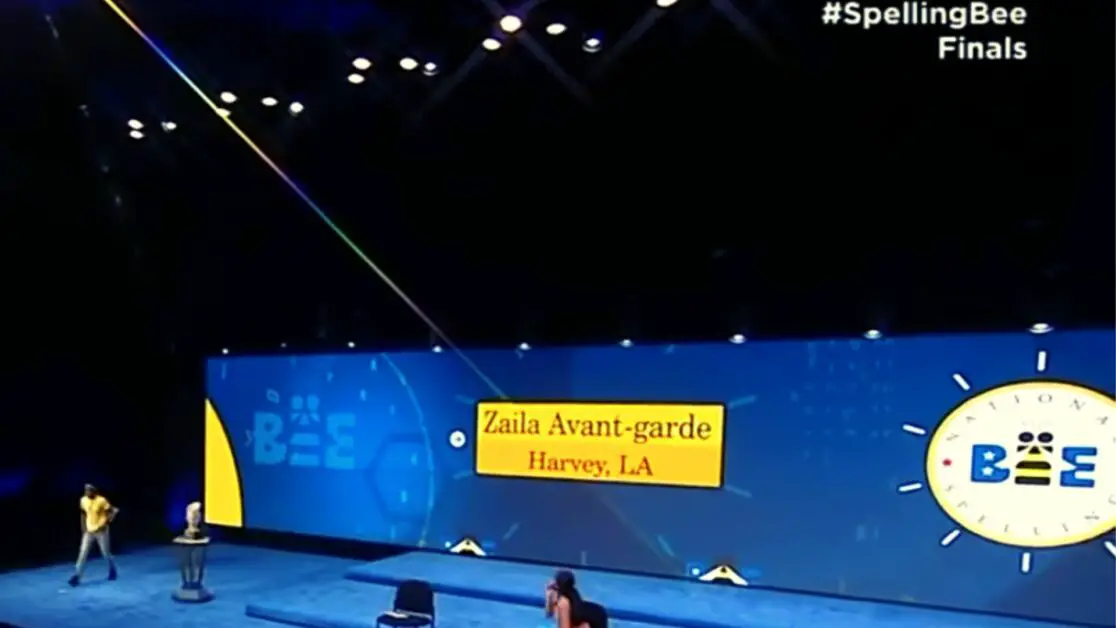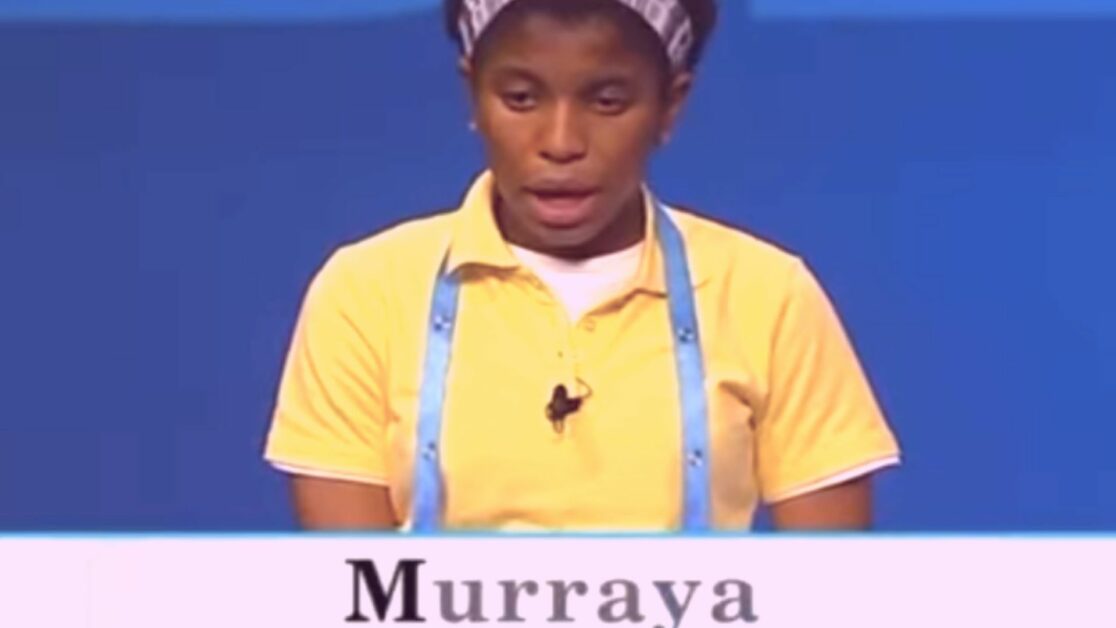It was the twirl that said it all.
It wasn’t the whimsical and mystical musing of Black Girl Magic. It wasn’t the kinetic manifestation of her delicious chocolate skin that innately makes her better than everyone else. It was a little 14-year-old girl spinning around with pride because she had accomplished through hard work something that no other Black person in America had done in history.
On July 8, 2021, Zaila Avant-garde became the first African American to win the Scripps National Spelling Bee.
Brava, brava @Basketballasart! You make us all P-R-O-U-D! 👏🏾👏🏾 https://t.co/R9J0fIufuV
— Oprah Winfrey (@Oprah) July 9, 2021
In almost a century, there has never been a Black person from her country of birth to win, but this beautiful little girl from Louisiana —void of butt shots, long weave, or anything close to what made the City Girls famous— pulled out the victory. We love #BlackGirlMagic but she also worked hard to achieve this goal. Her coach could attest to this … a little.
20-year-old Coach Cole Shafer-Ray, a Yale student and the 2015 Scripps runner-up, said about his student, “Usually to be as good as Zaila, you have to be well-connected in the spelling community. You have to have been doing it for many years.”
“It was like a mystery, like, ‘Is this person even real?’”
“She really just had a much different approach than any speller I’ve ever seen. She basically knew the definition of every word that we did, like pretty much verbatim,” he said. “She knew, not just the word but the story behind the word, why every letter had to be that letter and couldn’t be anything else.”

Despite working seven hours a day on practicing for this bee, maybe there is a little bit of magic there. She coolly remarked, “I was pretty relaxed on the subject of Murraya and pretty much any other word I got.”
There was one other Black person to win the competition in 1998, but she was not American. She was Jamaican. What makes her win significant and history-making is that she is the first non-Indian American (person of Asian descent) to win since 2008.
“I kind of thought I would never be into spelling again, but I’m also happy that I’m going to make a clean break from it,” she said. “I can go out, like my Guinness world records, just leave it right there and walk off.”
Guinness World Record? What you talkin’ bout Willis?
Zaila Avant-garde ✨#SpellingBee finalist 🤝 Guinness World Record holder. pic.twitter.com/yiSn6kTCwy
— espnW (@espnW) July 9, 2021
Zaila, whose last name was given to her by her father to honor Jazz great John Coltrane, has three Guinness world records for dribbling multiple basketballs simultaneously: Most balls juggled in one minute with four basketball, most dribbles in 30 seconds with four basketballs, and most basketballs dribbled by one person simultaneously.
She is something special.
And all of these wins are primarily for herself, but she also did it for the millions of Africans chained to the slave ships…
She did it on the shoulders of …
- John Chavis, the first Black person on record to attend an American college or university in 1799.
- Alexander Lucius Twilight, the first known African American to graduate from a college in the United States with a bachelor’s degree in 1823.
- James McCune Smith, the first African American to earn a medical degree in 1837.
- Charles L. Reason, the first African American to teach at a mixed-race institution of higher education in the U.S in 1849.
- Martin Henry Freeman, the first Black college president at Avery College in 1856.
- Richard Henry Green, the first African American to graduate from Yale College in 1857.
- Mary Jane Patterson, the first African-American woman to earn a bachelor’s degree in 1862.
- Rebecca Lee, the first Black female medical school graduate in 1864.
- Patrick Francis Healy (a former slave passing as white), the first Black faculty member at one of the nation’s highest-ranked and predominantly white universities (Georgetown University) in 1868 and then became the president of that school in 1874.
- James Webster Smith, the first Black student admitted to West Point in 1870.
- Edward Bouchet, the first Black to earn a Ph.D. at an American university in 1876.
- George Washington Henderson, the first Black student elected to the Phi Beta Kappa honorary society in 1877.
- Ida Gray, first Black woman to earn a degree in dentistry in 1890.
- Robert Robinson Taylor, first Black to graduate from the Massachusetts Institute of Technology in 1892.
- W.E.B. Du Bois, the first Black to get a degree from Harvard University, the oldest college in the United States in 1895.
- Anita Hemmings, first Black to receive a degree from Vassar College in 1897.
- Mary Annette Anderson, first Black woman to be elected to the Phi Beta Kappa honorary society in 1899.
She did it for MacNolia Cox, the first Black finalist at the Scripps National Spelling Bee in 1936, but because of Jim Crow laws, was not permitted to stay in the same hotel as the rest of the children participating in the contest.

We are proud of you and can’t wait to what else you do in the future. By the way … this ain’t Black Girl Magic … she won this with a gang of hours a day practices and a whole lot of sacrifice. #YouRockZaila

